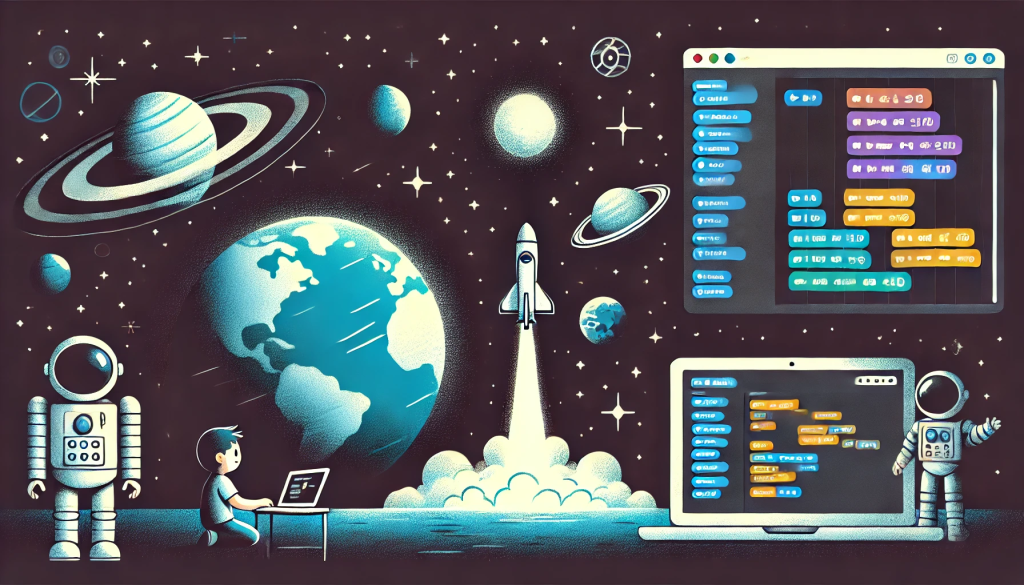
Introduction
Exploration 1
Open to Collaboration
The International Space Station (ISS) took 10 years and more than 30 missions to assemble. It is the result of unprecedented scientific and engineering collaboration among five space agencies representing 15 countries. The space station is approximately the size of a football field: a 460-ton, permanently crewed platform orbiting 250 miles above Earth. It is about four times as large as the Russian space station Mir and five times as large as the U.S. Skylab.
Source: https://www.issnationallab.org/about/iss-timeline/
Exploring Space with Scratch: A Journey through the Cosmos
In the last 50 years, humanity has made tremendous strides in space exploration, from landing on the moon to exploring Mars, and most recently, missions like India’s Chandrayaan and the long-duration spaceflights of astronauts like Sunita Williams. Despite these achievements, discussions around space have often faded between major milestones.
With the excitement of these accomplishments in mind, we have designed a series of Scratch projects for young learners in Science and Coding Clubs. These interactive projects will guide children through the fascinating world of space exploration. We will start with revisiting some of the History and Timeline of the International Space Station (ISS) and The Chandrayaan Project, India’s lunar exploration program, developed and executed by the Indian Space Research Organisation (ISRO).
The children will be given the framework and assignments to create their own games, quizzes, and simulations, sparking curiosity and creativity as they build their own coding projects. Through this journey, students will not only learn about space but also strengthen their problem-solving and programming skills in a very interesting and applied area of application of science.
From designing space missions to creating fun quizzes about our solar system, these projects will bring the excitement of space exploration into the classroom, encouraging children to think big and imagine the future of space travel.
If you’d like to collaborate with us on this exciting journey, please reach out at panchatantraprogramming@gmail.com.
